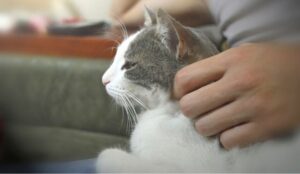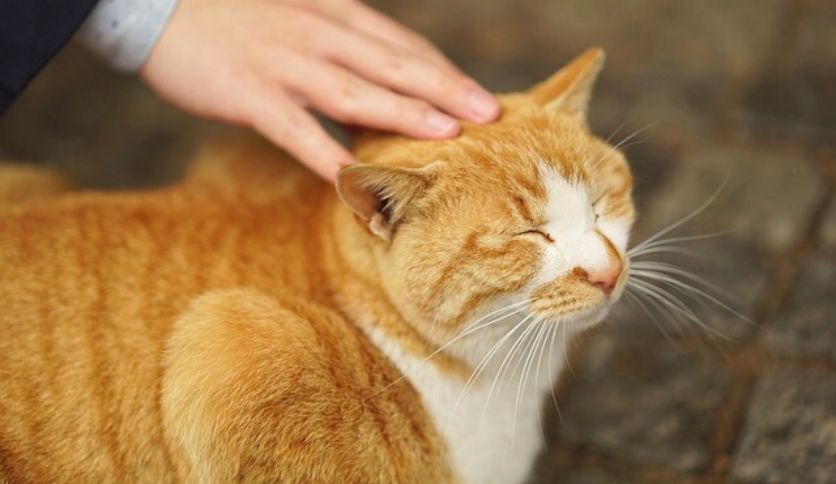To help cats gain weight, gradually increase their calorie intake by offering high-calorie, nutrient-dense foods and several small meals throughout the day.
Skinny Cat Weight Gain Strategies
A skinny cat can be a cause for concern, but there are strategies you can implement to help your furry friend gain weight. It’s important to understand the reasons behind your cat’s underweight condition. Several factors, including health issues, behavioral factors, and metabolism, can influence a cat’s eating habits and weight. Assessing your cat’s dietary needs and calculating their ideal body weight can help formulate a plan.
| Health Issues Influencing Weight | Behavioral Factors Affecting Eating Habits | The Role of Metabolism |
|---|---|---|
| Some health conditions can lead to weight loss in cats. Identifying and treating these conditions is crucial. | Cats may have behavioral issues that affect their appetite and eating habits. Addressing these issues can promote healthy weight gain. | A cat’s metabolism can vary and affect their ability to gain weight. Understanding their metabolic rate can guide dietary adjustments. |
Once you have determined the underlying factors, following veterinary nutritional guidelines is essential to ensure your cat’s balanced and suitable diet. Additionally, there are special considerations for underweight cats, such as providing frequent, small meals and enticing food options. Consulting with a veterinarian and monitoring your cat’s progress closely will help you tailor a plan specifically for your cat to achieve a healthy weight successfully.
Nutrition Plans To Fatten Up Felines

High-Calorie Foods for Cats: When it comes to helping your cat gain weight, it is crucial to incorporate high-calorie foods into their diet. Opt for commercially available cat foods specifically formulated for weight gain or those with a higher fat content. Additionally, consider adding treats such as cooked chicken or turkey, canned sardines, or mackerel into their feeding routine to boost calorie intake.
Wet Food vs. Dry Food for Weight Gain: Wet food tends to have a higher moisture content, making it easier for cats to consume and digest. It can benefit weight gain, as it generally contains more calories than dry food. However, if your cat is more inclined towards dry food, choose a brand with higher fat content options to support weight gain.
Supplements That Aid Weight Gain: Besides a balanced diet, you can incorporate supplements to help your cat gain weight. Omega-3 fatty acid supplements, such as fish oil, can stimulate appetite and promote weight gain. Probiotic supplements may also improve digestion and nutrient absorption, aiding in weight gain.
Homemade Recipes to Increase Weight: If you prefer a homemade approach, consider preparing meals using safe and suitable cat ingredients. Cooked lean meats, such as chicken or beef, can be combined with vegetables like carrots or peas to create a high-calorie and nutritious meal for your cat. However, it’s crucial to consult with a veterinarian to ensure that the homemade recipes meet your cat’s specific nutritional needs.
Feeding Schedules and Practices: Feeding your cat regularly throughout the day can help with weight gain. Instead of free-feeding, divide the daily recommended amount of food into several small meals. This approach encourages consistent calorie intake and prevents overeating. Always follow the feeding guidelines provided by your veterinarian or on the cat food packaging.
The Frequent Small Meals Approach: Offering frequent small meals can appeal to cats and encourage them to eat more. Consider evenly spreading their food intake over five to six small daily meals. This approach can help prevent them from feeling overwhelmed by large portions and may increase their overall calorie consumption.
Importance of Consistency in Feeding: When it comes to helping your cat gain weight, consistency is key. Stick to a regular feeding schedule and avoid sudden changes in their diet. Cats thrive on routine, and a consistent feeding schedule helps them feel secure and comfortable during meal times.
Food Placement Techniques for Encouragement: Experiment with different food placement techniques to stimulate your cat’s appetite. Some cats prefer elevated feeding stations, while others prefer a quiet and secluded area away from distractions. Offering a variety of food puzzles or interactive toys can also make mealtime more engaging and encourage weight gain.
Monitoring Cat Weight Progress
Setting realistic weight gain goals is essential when trying to help your cat gain weight. Consult with your veterinarian to determine the ideal target weight for your cat based on their breed, age, and overall health. This will help ensure that you have a specific goal to work towards.
Regular weigh-ins and body condition scoring are effective ways to monitor your cat’s progress. Weigh your cat every week or every other week, keeping track of their weight on a chart. Additionally, perform a body condition score to assess their overall muscle and fat composition. This can help you determine if adjustments must be made to their diet or exercise routine.
Adjusting diet plans based on progress is crucial. If your cat is not gaining weight as expected, you may need to increase the amount of food they consume or switch to a higher-calorie diet. Conversely, if your cat is gaining weight too quickly, adjustments can be made to slow the process down. Always consult with your veterinarian before making any changes to your cat’s diet.
Ensuring Long-term Health For Heavier Cats
Ensuring long-term health for heavier cats is crucial for their well-being. Helping your skinny cat maintain a healthy weight and preventing obesity while gaining weight are vital considerations. Exercise routines for weight management play a significant role in achieving these goals. Regular physical activity, tailored to your cat’s abilities and gradually increased, can aid in weight gain. Engaging your cat with interactive toys or games to encourage movement is a great way to promote exercise. Additionally, providing vertical spaces like climbing trees or shelves can motivate them to be active. It’s also important to focus on the nutritional aspect. Ensure a balanced diet by providing high-quality cat food with the guidance of a veterinarian. They may recommend increasing portion sizes or switching to a high-calorie diet. Regular check-ups with the vet will help monitor your cat’s weight gain progress and make necessary adjustments to their routine.
Frequently Asked Questions For How To Get A Cat To Gain Weight
How Do You Fatten Up A Cat?
To fatten up a cat, feed them a high-calorie diet with a balanced mix of proteins and healthy fats. Consult a veterinarian to determine the right quantity and frequency of meals. Encourage exercise and engage in playtime to maintain overall health.
Keep in mind that weight gain should be gradual and monitored closely.
What Can I Feed My Cat To Gain Weight?
To help your cat gain weight, consider feeding them high-calorie foods like canned cat food, kitten food, or prescription diets specifically designed for weight gain. You can also add supplements like fish oil or cat-friendly weight gain powders to their meals.
It’s important to consult your veterinarian for the best advice tailored to your cat’s needs.
What To Do If My Cat Is Too Skinny?
To help a skinny cat gain weight, consult a veterinarian for a comprehensive health checkup and possible medical conditions. Additionally, consider providing a nutritious and balanced diet to meet their nutritional needs. Offer frequent small meals and ensure they have easy access to fresh water.
Is My Cat Too Skinny If I Can Feel Her Spine?
Feeling your cat’s spine may indicate that she is too skinny. Ensure she has a balanced diet and visit a vet for a health check-up.
Conclusion
Ensuring your cat maintains a healthy weight is essential for their overall well-being. Following these tips and tricks can help your cat gain weight safely and effectively. Remember to consult with your veterinarian to create a personalized plan for your cat’s unique needs.
With proper nutrition, regular monitoring, and plenty of love and care, your cat will be on the road to a healthier weight in no time. Take the necessary steps today to provide your feline friend with the best possible quality of life.

Hello, this is Frank Swanson, the owner, and operator of Pet Info Hut. I created this website as a way to share my love of pets with the world. I have over 7 years of experience working with animals, and I have a passion for helping people care for their pets. I hope that you find my website useful and informative. Thanks for visiting!
